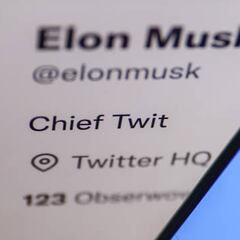What is Mastodon? Decentralised social media site offers a choice of servers
Many users are looking for a change of platform after Elon Musk’s Twitter purchase and some are turning to a little-known open source alternative.


Elon Musk’s acquisition of Twitter for $44 billion was not short of controversy and the attention has only heightened in recent days as the new owner fired a raft of company staff.
Proposals to introduce a monthly fee for verified users and concerns surrounding Musk’s willingness to tackle misinformation have created a surge in interest for a small decentralised social network called Mastodon.
First unveiled in 2016, Mastodon has grown in recent weeks and is stoically committed to remaining free to use and free of ads.
Visually, Mastodon mimics the appearance of Twitter with a timeline comprised of brief updates presented in chronological order. However unlike Twitter, users subscribe to different servers overseen by different groups and individuals. There is no central platform bringing together all the content for a single view, as is the case on Twitter, Facebook and Instagram.
Mastodon is an open source social networking platform, meaning that users are able to use the site’s tool to make their own networks. If you hear of people leaving Twitter for Mastodon, they are actually leaving for an independent site that is hosted by Mastodon and its freely-available technology.
Indeed it's looking more and more like Mastodon. Refreshingly un-corporate, un-billionaire, and un-fascist. I'm there as @ClimateHuman though I haven't posted much yet. Also on TikTok as @ClimateHuman. I'll also stay here until it's untenable.
— Peter Kalmus (@ClimateHuman) November 4, 2022
And that is a trend that may become increasingly popular in the future. Mastodon creator Eugen Rochko said on Thursday that 230,000 new users had flocked to the site since Musk took control of Twitter on 27 October.
For context, that brings the total number of active monthly users to 655,000.
How do Mastodon servers work?
Sites like Twitter and Facebook have just a single server, under which all users operate. Mastodon allows users to create their own servers, known as instances, which are bound by their own self—defined rules.
Most servers are built to satisfy a certain interest; like the gaming-orientated server gensokyo.social, or climate change community on mastodon.green.
While each server has its own discreet rules and guidelines, most remain open to users from other servers. Provided that the server is not private, you can follow users from different servers freely. Bear in mind, however, that their posts will only have to comply with the guidelines implemented on their server.
There are currently more than 3,000 servers, each with its own privacy rules, community guidelines and content moderation processes. Ownership of the platform, and the individual servers, are divided across a number of non-profit organisations. This insulates users from a repeat of Musk’s purchase of Twitter, where a hostile takeover allowed a single individual to unilaterally tear up some of the rules and principles that have governed the site in the past.
Related stories
Long before Musk’s takeover was first mooted, Mastodon was created as a response to the structure of Twitter. Rochko told Forbes: “I was growing dissatisfied with Twitter, the company and the platform.”
He said: “It made me realize that the method of expressing myself online was too important to be in the hands of a single corporation that could do anything with it that it wanted without any recourse.”

